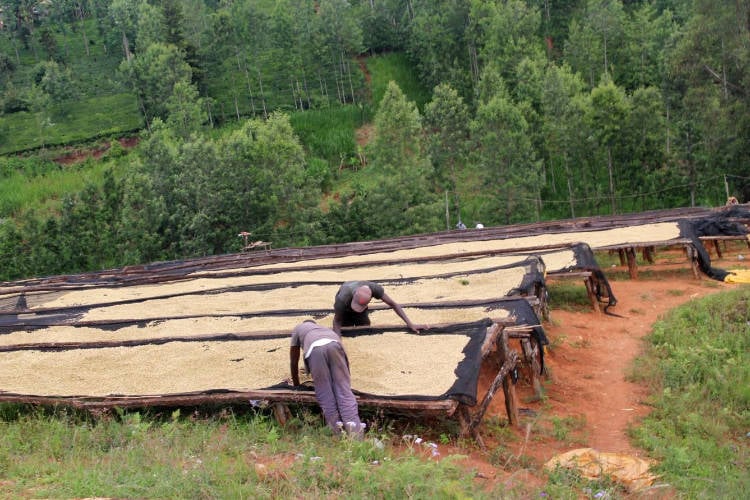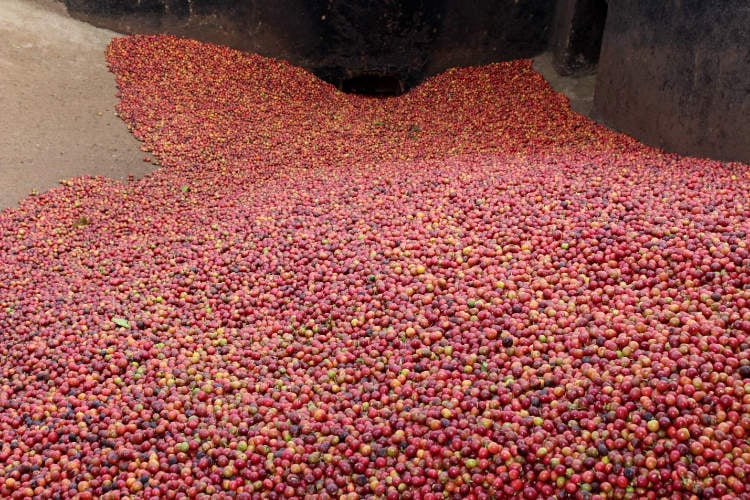This is the second of two small Kenya lots selected for this season. The first, Barichu AA, has sold out.
Karinga is a washing station in Kiambu Country, Thika District in the
Central Province Kenya; in Kenya these stations are referred to as
factories. The Karinga factory serves four local villages: Kimaruri,
Kariungu, Gachuha and Mugalwa and is affiliated with the Gitwe Farmers
Co-operative Society Ltd. At present there are 650 coop members of
which 500 are active farmers. The most unique aspect of this factory is
that it is located within tea growing zones. Most of the farmers here
also grow tea.
Kenya has a unique double soak washing process. Washed coffee is distinguished by the clarity of the flavors and attributes that it can achieve. During this process, the sugars present in the mucilage are removed through natural fermentation or mechanical scrubbing. Fermentation can be done by stacking the coffee outside or placing them under water and allowing nature to take its course. After the sugars are removed, the beans then can be taken through a secondary washing to remove any additional debris, or taken immediately to the patios or beds for drying. During wet processing, the pulp is removed mechanically. The remaining mesocarp, called mucilage, sticks to the parchment and is also removed before drying. Mucilage is insoluble in water and clings to parchment too strongly to be removed by simple washing. Mucilage can be removed by fermentation followed by washing or by strong friction in machines called mucilage removers. The method and supervision of fermentation can make or break a coffee's final outcome. These coffee cherries were hand sorted by the farmers before they went into production. After their skins were removed the coffee was put into fermentation tanks where it was stored at least overnight, then washed, soaked and spread on drying tables. Once on the tables frequent turning is required until the coffee reaches the desired moisture level of 11-12%. Lastly the coffee, in its parchment parchment gets stored to rest until delivery to the dry mill.

Workers sorting coffee in its parchment husk on drying tables

Ripe coffee cherries being prepared for processing
This
lot is comprised almost entirely of famed SL-28 and SL-34 varietals,
Bourbon derivatives, that were developed decades ago by Scott Labs
during the 1930s for the best flavors and are now being reproduced in
areas around the world when conditions are right. These varieties are
known for their depth, sophisticated flavor and wine-like acidity.
These SL varieties have the potential to be exceptional when produced in
the right place and with care. Kenya has become world famous for these
varieties and the complexity of the resulting coffee. Top quality
Kenya is on every coffee professional's list of favorites.
- Washing Station/Factory: Karinga
- Coffee Cooperative: Gitwe Farmers Co-operative Society Ltd
- District: Kiambu County
- Division: Thika
- Altitude: 1840 Meters above sea level
- Coffee Variety: Almost entirely SL28, SL34
- Shade Trees: Gravellea, Macadamia
- Soil: Red volcanic
- Processing: Washed

